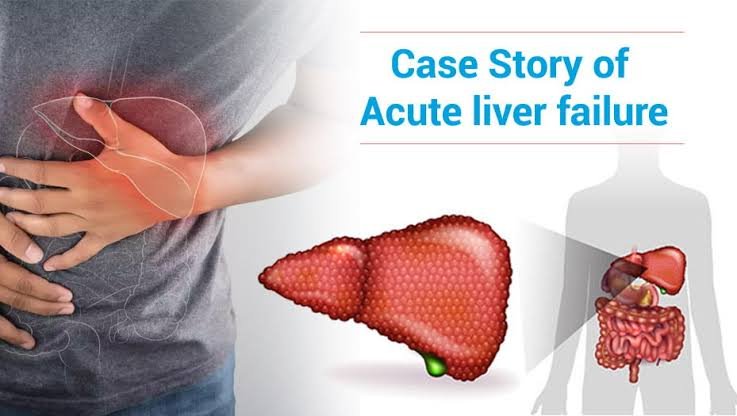Acute liver failure (ALF) is a rare but life-threatening condition characterized by the rapid deterioration of liver function within days to weeks, often leading to serious complications. Here’s a detailed overview for your blog:

- Causes: Acute liver failure can have various causes, including viral hepatitis (such as hepatitis A, B, or E), drug-induced liver injury (from medications or toxins), autoimmune hepatitis, metabolic disorders, and acute fatty liver of pregnancy. In some cases, the cause remains unknown (idiopathic).
- Symptoms: The symptoms of acute liver failure can vary but often include jaundice (yellowing of the skin and eyes), fatigue, abdominal pain or discomfort, nausea, vomiting, loss of appetite, confusion, and in severe cases, coma and bleeding tendencies.
- Diagnosis: Diagnosis of acute liver failure involves a thorough medical history, physical examination, and laboratory tests to assess liver function, including liver enzyme levels, bilirubin, and clotting factors. Imaging studies such as ultrasound or CT scans may be performed to evaluate the liver and rule out other conditions.
- Prognosis: The prognosis of acute liver failure depends on various factors, including the underlying cause, the extent of liver damage, and the promptness of medical intervention. Without prompt treatment, acute liver failure can rapidly progress to hepatic encephalopathy, coma, and death.
- Complications: Acute liver failure can lead to serious complications, such as hepatic encephalopathy (a decline in brain function due to liver dysfunction), cerebral edema (swelling of the brain), infections, kidney failure, and multiorgan failure. Bleeding tendencies may also occur due to impaired clotting function.
- Treatment: Management of acute liver failure involves supportive care and addressing the underlying cause, if known. This may include hospitalization, close monitoring of liver function and vital signs, nutritional support, administration of medications to manage symptoms and complications, and in some cases, liver transplantation.
- Liver Transplantation: Liver transplantation may be necessary for patients with severe acute liver failure who do not respond to medical treatment or have irreversible liver damage. Transplantation can be life-saving, but it requires careful evaluation and coordination by a multidisciplinary team of healthcare professionals.
- Prevention: Preventive measures for acute liver failure include vaccination against hepatitis viruses (such as hepatitis A and B), avoiding excessive alcohol consumption, using medications and toxins cautiously under medical supervision, and seeking prompt medical attention for symptoms of liver disease.
- Research and Future Directions: Ongoing research aims to improve the understanding and management of acute liver failure, including the development of new treatment strategies and the identification of biomarkers for early diagnosis and prognosis.
By raising awareness of acute liver failure and providing comprehensive information on its causes, symptoms, diagnosis, and treatment, my blog can help educate readers and promote early detection and intervention for this potentially life-threatening condition.




